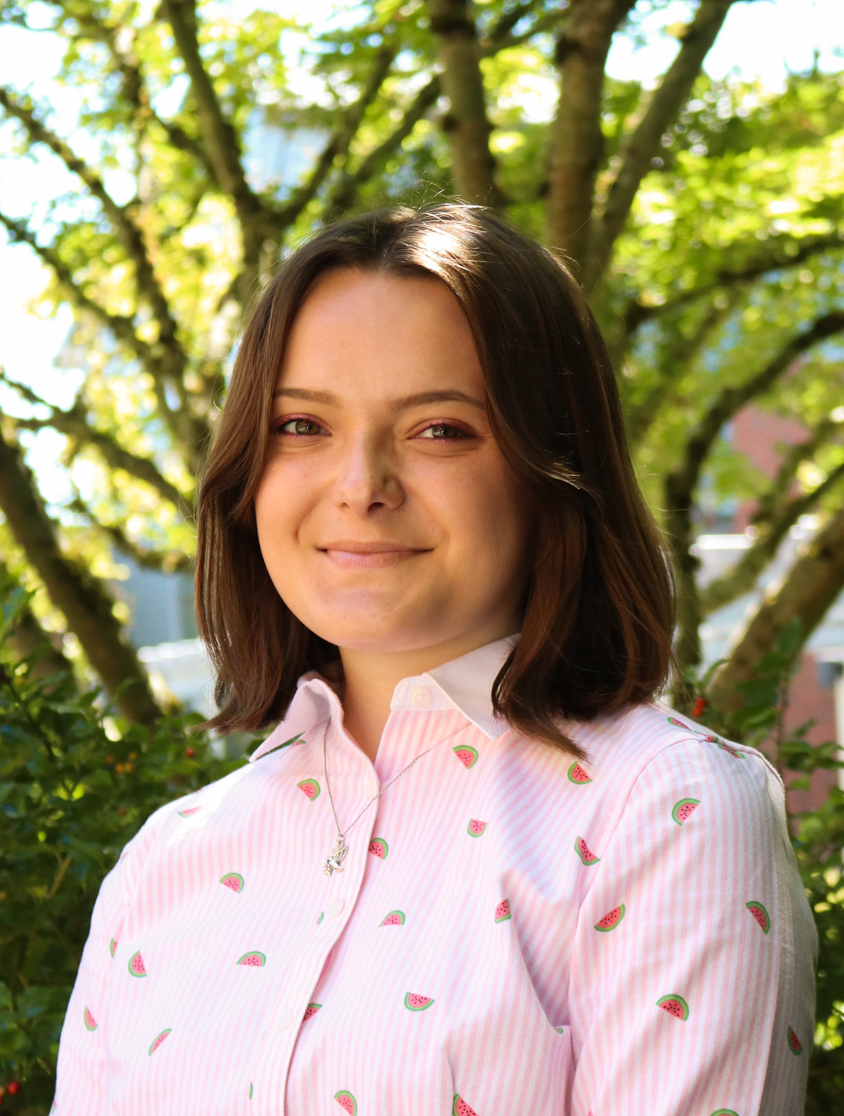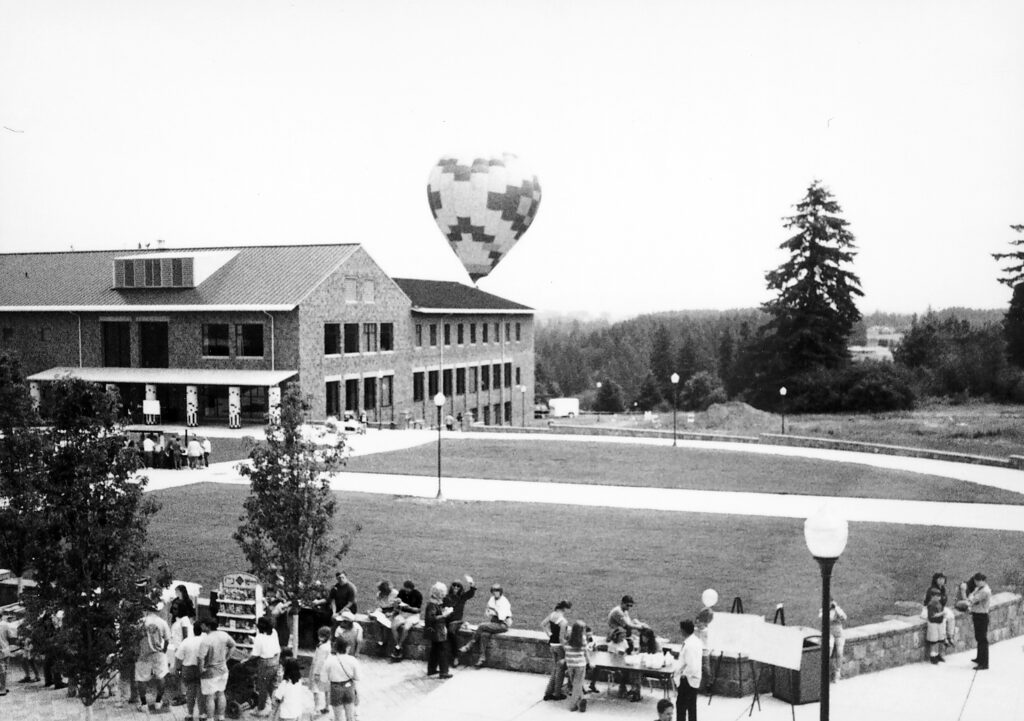Robert Schimelpfenig is WSU Vancouver’s leading archivist, collecting and organizing every historical document, photo or object he receives. In his office, toward the back corner of the library, Schimelpfenig is surrounded by a vast majority of both physical and electronic archives he has maintained since 2006. Exploring his special interest in the university’s rich history, Schimelpfenig answers how WSU Vancouver made its mark on southwest Washington, and what unique items are hidden in the seemingly endless archives.
Taking a peek into the library’s archives can transport a curious onlooker back to the late 1800s. Containing mostly primary historical artifacts from areas near Vancouver and around Washington state, Schimelpfenig says WSU Vancouver’s archives have existed since the 1980s, but many collections are dated farther back.
“Archives are really about primary source materials and records, and that’s what historians use to interpret the past. What we’re really collecting now is for the future. … Our mission here is to help preserve the history and culture of the campus. When I come to work and specifically think about the archives’ collection, I have to think 50 years ahead of everyone else, when things are donated, how would someone 50 years from now perceive the material or these records? Does it have an enduring historical value?” Schimelpfenig said.
As for Schimelpfenig’s fascination in WSU Vancouver’s past, the archivist wrote an article in 2018 for the Clark County Historical Museum titled “The Birth of the Four-Year University in Southwest Washington,” which details the university’s long-awaited establishment in the region, as well as how “public education paved the way.”
The existence of the university was debated over 150 years ago with the passage of the Morrill Land Grant College Act of 1862. This bill authorized federal land grants to create colleges across the state stretching all the way to WSU Vancouver’s establishment at Clark College, to 1995 when the first five buildings on campus were constructed.
Establishing a four-year university in southwest Washington was no easy feat, and in his article, Schimelpfenig says it has changed the area’s vital academic presence to this day.
“Through a long and sometimes entangled history, the perseverance of individuals and collaborative efforts of higher educational interests in the region helped build toward the success of southwest Washington’s university. With the launching of its strategic plan in 2016, identifying goals towards research, student success, growth equity, diversity and community, WSU Vancouver is poised to continue its contribution to southwest Washington for years to come,” Schimelpfenig notes in the article.
Not only does Schimelpfenig keep a vast majority of physical documents and artifacts, but the archivist has multiple technological tools used to keep a sea of digital records. Additionally, he constantly adapts to new methods of preservation and record-keeping while technology evolves over time. Many of these technologies might be used for transferring physical documents or photos, but some items need to be placed in the digital archives because they come from existing electronic material.
“We’re using scanners, flatbed scanners, slide scanners, VCRs, tape decks to capture some of that digitally from the analog technology. Those are digital surrogates, the other one that’s a little bit trickier is the Born-Digital, and those are the things that are not originating from paper, but from electronic media,” Schimelpfenig said. “There’s different layers to the digital technologies that we’re using. … We started preserving archives on multiple external hard drives, and now they’re getting into a different environment, not a stable environment because technology is unstable, that’s the nature of it. So it’s evolving.”

Commenting on the importance of the archives, Kerry Hodge, the library’s technical services supervisor, says the preservation of artifacts, documents and other records is essential to preserving the past, and provides accessibility to analyze archives in the present and interpret them in the future.
“That’s what preservation is for, to help show us what our past was, so that we can have that knowledge, that working knowledge. That’s really important for not just our campus, but for everything because history is so valuable,” Hodge said.
The archives have a significant presence independently on campus, but Schimelpfenig is expanding toward other historical organizations in the community. Some such as the Clark County Historical Museum, the Two Rivers Heritage Museum in Washougal, the Lelooska Foundation and even Washington State School for the Blind, all of who currently have access to WSU Vancouver’s archives.
“The mission of the archives is really three-fold. [First,] we collect records of primary sources to help preserve the history and culture of the campus. [Secondly,] we collect history from alumni who have made a significant impact on southwest Washington. The third aspect is that we partner with numerous historical organizations in southwest Washington to help them find funding for projects, and help preserve their collections,” Schimelpfenig explained. “We’ve only been here for 30 years on this campus, the archive has been around for half that, so our campus history isn’t that extensive. … But we want to expand our collections to help other organizations.”
For students who are interested in visiting the archives, Schimelpfenig is available by appointment for archival tours. Students and staff can also go online to the library’s Archives & Special Collections website page, which will grant access digitally to all available online collections.

Olivia is a senior studying English at WSU Vancouver.
